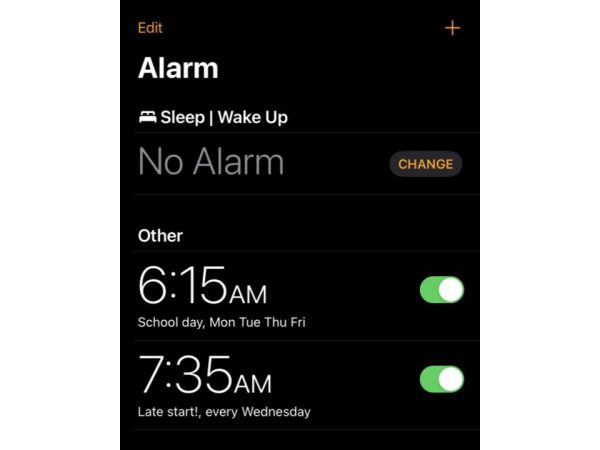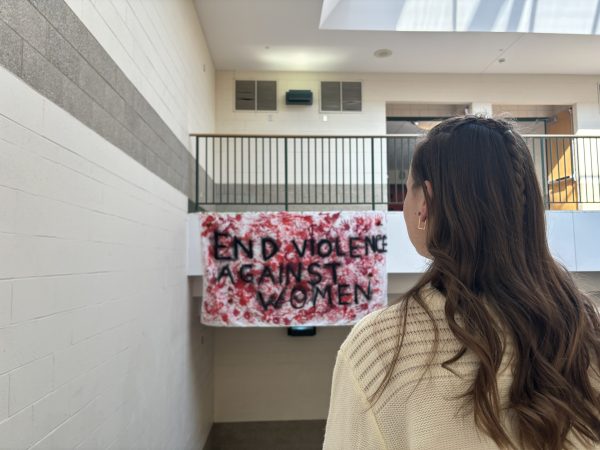Why we need feminism–Women’s History Month

I’m sure there are a plethora of things that may come to mind when you think about feminism: men-hating, hypocritical, ungrateful, overreacting, attention-seeking women whose actions are akin to tantrums thrown by toddlers.
Feminism is one of the most controversial movements to take place in America, whether it be the crusade for the vote in the early 20th century or the Women’s March that took place only a couple of months ago. Even with the millions of supporters–both men and women–that promoted each event, there have been just as many people who criticized them.
The critics back in the day loved to point out how “women are too delicate for the vote” or that they “belong at home with the kids”; nowadays, they love to point out how “women have all the same legal rights as men” and accuse all the participating feminists as “overreacting”, calling them “feminazis”.
And perhaps things may seem that way–after all, no employer is legally allowed to distribute pay based on gender, and women technically get all the same benefits as men do. They say the pay gap of 71 cents for every man’s dollar doesn’t take into account how many women don’t work, or leave their jobs to have children. No man admits to thinking women are less than him these days, and many women state that they have never felt discriminated against based on their gender.
So the question is: why do we even need feminism?
Before we get all technical, I ask you to think about just a couple things first. Think about how, when you want to call someone weak, you refer to them as a “sissy”, or other feminine terms. Think about how unathletic people catch, run, hit, shoot or other sport related activities “like a girl”. Think about how women take their husband’s name when they get married, but a man never takes his wife’s. Think about how there are far more men in high-level government or corporate positions, while women dominate education and other caregiving services, which are often very low in pay.
Yes, women are equal to men–on paper. African Americans were allowed to vote on paper after the Civil War, but that doesn’t mean that’s what happened. According to research done by PayScale, women tend to make up to 4% less than their male counterparts who are the exact same age and have the exact same job, education, qualifications, and performance–even in women dominated areas like elementary education, men make 1% more per year.
Now, that may seem extremely low, perhaps insignificantly so, but the fact stands that it is unequal. And that’s exactly what feminists are fighting against–inequality. Many people need only to read the dictionary definition of feminism, which is, and I quote, “the advocacy of women’s rights on the basis of the equality of the sexes.”
Hear that? Fighting for equality. If you’re looking for the true men haters, I suggest you look to the misandrists (/miˈsandrist/ noun 1. a person who dislikes, despises, or is strongly prejudiced against men).
And equality doesn’t just mean in the eyes of the law–it means in the eyes of society. It means little girls not being taught they have to be saved by a prince (I’m lookin’ at you, Cinderella) and that their only goal in life is to be a good homemaker (I don’t know about you, but I don’t see many boys preparing for family life by pushing around a stroller with a baby doll at age 5). It means that girls should be taught to be powerful, just as boys are.
One study, as explained in the New York Times, explored this gender-based conditioning. At age five, when shown pictures of a boy and a girl, boys and girls were equally likely to associate intelligence with their own gender. By age six, little girls associated it with the boys significantly more than before.
Perhaps that misdirection in encouragement is why in a government of well over 800 seats only about 20% of them are held by women, despite the fact that women make up about 54% of voters (Center for American Women and Politics). Yes, women have the same legal ability to run for office, but either not enough women want to run, or not enough voters feel comfortable with having a woman in a position of power.
That power complex doesn’t only appear in the government. It’s everywhere; it’s in the fact that women have a 25% chance of being sexually assaulted because men feel entitled to their bodies; that a Congress dominated by white, middle-aged males are trying to dictate what a female can and cannot do with her own body (debate about the meaning of life all you want: birth control and everything that fits into that category has been deemed a privacy issue, since everyone has the right to their own body). It’s in the fact that many men feel like they need to take care of their sisters or moms or girlfriends because they, in some capacity, can’t take care of themselves.
In short, women aren’t marching because they feel legally discriminated against. They aren’t marching because they hate men. They are marching because of the people who complain about the fact that women feel the need to march; they are marching to show that the fight isn’t over, and that there is still a long way to go until true equality is reached.

Gracie is a junior at York, in her second year on the York Hi staff as the Graphics Editor. She spends a majority of her time drawing, and on extracurriculars...











